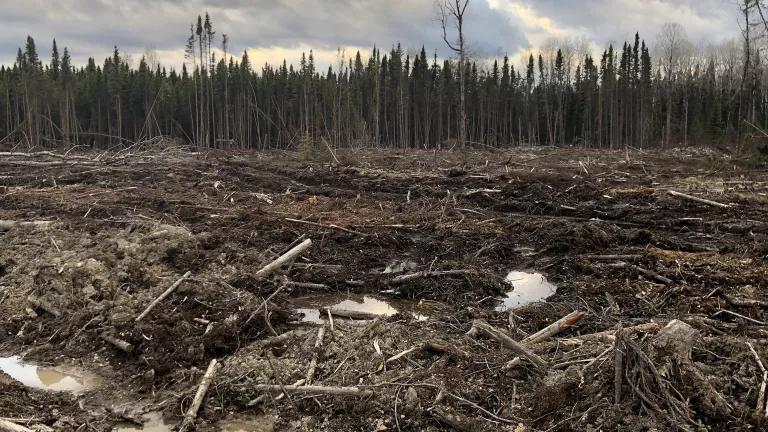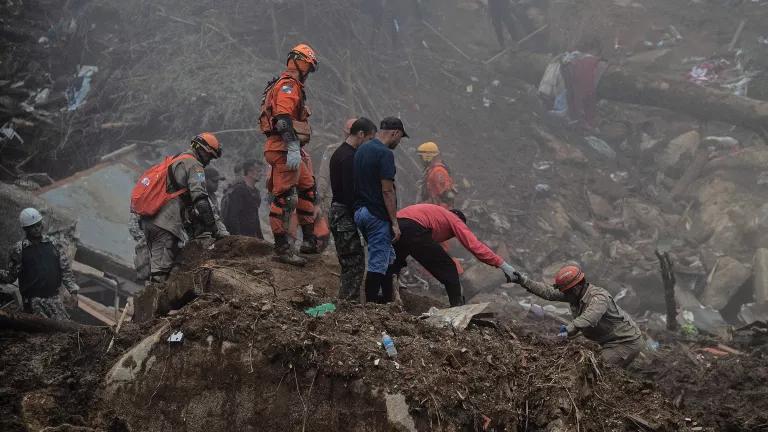NRDC Experts and Events at COP27
Analysis and events focusing on the concrete steps we need to cut global emissions in half in this decisive decade, and to adapt to the mounting climate change impacts we can no longer avoid.
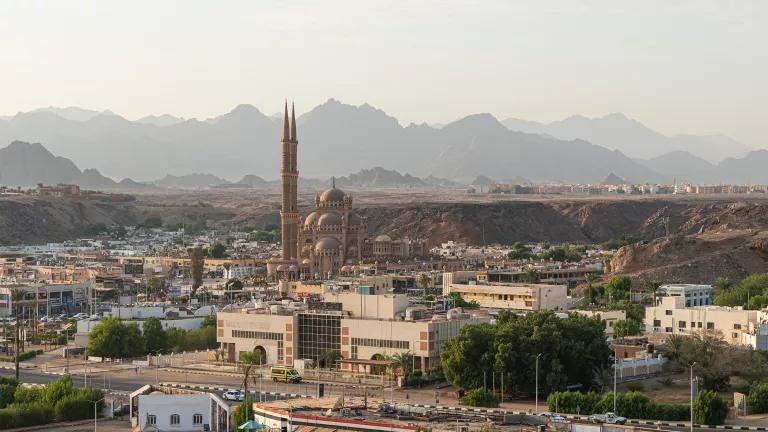
The Al Shaba Mosque and Old Market in Sharm El Sheikh, Egypt
Shutterstock
The 27th Conference of the Parties to the United Nations Framework Convention on Climate Change (COP27), from November 6–18, 2022, in Egypt, brought together world leaders—presidents, governors, mayors, CEOs, philanthropy, and civil society—to advance the concrete steps that are needed to cut global emissions in half in this decisive decade, and to adapt to the mounting climate change impacts we can no longer avoid.
In the wake of another record-breaking year of extreme droughts and floods across the planet, and in the context of global energy crises and growing inequity, the international community must take bold and decisive action. It is no longer sufficient to set ambitious targets; leaders must also swiftly deliver on their existing commitments to equitably support the transition from fossil fuels and invest in clean energy solutions and green workforces; protect the world’s most vulnerable; conserve the natural world; and respect the leadership of Indigenous communities.
NRDC’s international experts have participated in the U.N. global climate talks for many years. This year, we sponsored and spoke at events and engaged with partners across a broad range of topics.
We welcome you to browse these topics and event information below.
Between now and 2050, $100 to $150 trillion in investment is needed to limit warming to 1.5 degrees Celsius and build resilience for people and nature. Wealthy countries must deliver and build on their climate finance commitments; public financial institutions—including multilateral development banks—must raise the quantity and quality of their climate finance; and greater amounts of private capital must be rapidly mobilized toward green sectors. At COP27, countries will continue deliberations on a new collective climate finance goal for the post-2025 period. The issue of funding for loss and damage will also be a major topic as developing countries call for concrete financial commitments to support them when climate impacts exceed their ability to adapt.
Event 1: Achievement, Additionality and Ambition: 10 Years of Australia’s Green Bank and Green Finance in Practice
Our collective transition to net zero requires investment in new projects and technologies on an unprecedented scale. Public capital is being used around the world in innovative ways to facilitate increasing amounts of private investment; converting ambition into reality.
This two-part event will highlight how green banks in Australia and elsewhere work with investors, innovators and industry leaders to deliver ambitions for a thriving, low emissions future. It will include a panel featuring innovative climate finance leaders in conversation on the rapidly changing landscape and what delivering on our collective ambition requires, now and into the future.
Date: November 9, 2022; 2 – 3 p.m.
Location: Australia Pavilion
Organizers: Clean Energy Finance Corporation
Event 2: Delivering High Integrity Climate Solutions: The Role of Green Banks
Achieving the Paris targets will require deep decarbonization throughout all sectors of the economy, and trillions of dollars of investments in climate solutions. Unlocking the scale of finance needed will require purpose built green financial institutions that can help convene key stakeholders, curate viable pipelines of investable opportunities and mitigate certain risks for private investors, all tailored for local circumstances and needs. Green Banks are a successful model for effectively channeling public capital to leverage private capital to deliver real climate solutions and positive outcomes in communities in both developed and developing economies. This panel will hear from some of the leaders in building the green bank institutional framework to achieve our climate and capital mobilization objectives.
Date: November 16, 2022; 9:30 a.m.
Location: The Climate Registry Pavilion
Organizers: Pollination
Publications
Blogs
According to the IEA’s Net Zero Emissions by 2050 Scenario, unabated gas-fired generation should begin declining in the late-2020s. But our analysis shows that using liquefied natural gas (LNG) to replace other, dirtier fossil fuels is not an effective strategy to reduce greenhouse gas (GHG) emissions.
Publications
- Risky Business: Surging U.S. Liquefied Natural Gas Exports Jeopardize Global Decarbonization Goals
- Sailing to Nowhere: Liquefied Natural Gas Is Not an Effective Climate Strategy
Blogs
The fight to keep the planet below the 1.5 degrees Celsius threshold cannot be won without India’s active engagement. India is both a major contributor to GHG emissions, despite a very small carbon footprint per capita, and extremely vulnerable to the impacts of global warming. With ambitious climate commitments, a strong and growing clean energy sector, and innovative approaches to climate resilience, the country is in a unique position to help influence conversations at COP27.
Event 1: International Conference on Citizen-Centric Energy Transition: Empowering Citizens to Lead the LiFE Movement
One of the most important tools in our fight against climate change and our efforts to protect the planet is a timely transition to clean sources of energy. This energy transition has to be just, inclusive, and equitable and leave no one behind. As demonstrated effectively by India, a citizen-centric approach to the transition will not only help meet the above objectives but also accelerate the pace and scale of the transition while creating much-needed awareness among common citizens for adopting sustainable lifestyles.
India's Ministry of New and Renewable Energy, along with partners, will bring together senior representatives from the governments of select countries and multilateral bodies to showcase success stories of citizen-centric energy transition from around the world and discuss ways to promote this approach as the guiding principle for global energy transition.
Date: Tuesday, November 8, 2022; 10 a.m.–12 p.m.
Location: India Pavilion
Organizer: India’s Ministry of New and Renewable Energy
Event 2: Advancing Action on Heat Resilience and Climate-Friendly Cooling
Extreme heat exposures, already a public health emergency in many countries, continue to worsen with each passing year. Global estimates indicate that by 2050 more than 255,000 people could die prematurely each year from extreme heat waves. Combined with the challenge of rising heat, is the challenge of access to climate-friendly cooling. Staying cool during extreme heat is about more than comfort—it can make the difference between life and death. And historically, indoor cooling has been considered a luxury in many parts of the world. Of the 2.8 billion people living in the hottest parts of the world in 2018, only about 8 percent had an air conditioner.
This thematic side event brings together government and national actors from India and other countries to brainstorm on what is needed to implement transformative solutions on heat and cooling in developing countries. The event provides an opportunity to discuss innovative ideas to fast-track and scale implementation of efficient, climate-friendly strategies to build resilience at both local and global levels.
Date: Monday, November 14, 2022; 5:00 pm
Location: UNFCCC Global Innovation Hub
Organizers: UNFCCC; India’s Ministry of Environment, Forest and Climate Change; NRDC
Publications
- Climate Change and 2030 Cooling Demand in Ahmedabad, India: Opportunities for Expansion of Renewable Energy and Cool Roofs
- The Road from Paris: India’s Progress Toward Its Climate Pledge
Blogs
Ending the destruction of irreplaceable primary boreal forests by industrial logging, a significant source of GHG emissions, is vital to meeting global climate targets. Under the Glasgow Leaders’ Declaration on Forests and Land Use, signed by more than 140 countries a year ago in Glasgow, countries in the Global North need to prioritize not just the protection of tropical forests but also the carbon-rich, climate-critical primary and mature forests under significant threat within their own borders.
Event: Lost in the Woods: Industrial Logging’s Unacknowledged Climate Impact
This virtual event will bring together science and policy experts to discuss the logging industry’s role as a significant, but often unacknowledged, driver of climate change. Panelists will highlight the irreplaceable value of high-carbon primary and mature forests in North America; climate myths around sustainable logging and industries like biomass; and the need to prioritize the protection of forests in the Global North, alongside those in the tropics.
Date: Tuesday, November 8, 2022; 12 p.m. EST
Location: Virtual
Organizer: NRDC
Climate change and biodiversity loss cannot be solved independently. Building on carbon neutrality commitments, countries should make the best use of nature-based solutions in advancing the synergetic governance of climate and biodiversity.
Event: Nature-based Solutions in Advancing Synergy between Climate and Biodiversity
This event brings together a variety of panelists from research institutes, private sectors, governments, and NGOs to discuss how cross-country and cross-sector collaborations can be effectively promoted to adopt Nature-based Solutions (NbS) to mitigate climate change and enhance resilience in society and ecosystems while conserving biodiversity. The speakers cover climate mitigation and adaptation in forests and grasslands; mainstreaming of NbS in climate actions; and practices from the private sector that help tackle climate and biodiversity issues.
Date: Nov 17, 2022; 4 p.m. – 7 p.m.
Location: China Pavilion
Sponsors: China Green Carbon Foundation, Institute of Climate Change and Sustainable Development Tsinghua University, International Union for Conservation of Nature (IUCN), NRDC, World Economic Forum (WEF), and others
Speakers
- Sun Zhen, deputy director general, Department of Climate Change, Ministry of Ecology and Environment
- Li Zheng, dean, Institute of Climate Change and Sustainable Development Tsinghua University
- Brendan Guy, director, International Climate, NRDC
- Mr. Sandeep Sengupta, global coordinator, Climate Change Portfolio, International Policy Centre, IUCN
- Gim Huay Neo, managing director, Centre for Nature and Climate, WEF
- And others
Reversing the decline of the world’s oceans hinges on effective climate action and new initiatives to protect biodiversity at COP27. Two key opportunities to do that in coming months are the adoption of new 10-year global biodiversity targets at the Conference of the Parties to the Convention on Biological Diversity in December and the finalization of a new high seas treaty early in 2023.
Publications
Helping countries prepare for the inevitable impacts of global warming is imperative. Human health, water, agriculture, and infrastructure are just some of the critical pillars of our communities that are being affected by increasingly severe heat, floods, hurricanes, droughts, and other catastrophes. COP27 will be a critical moment for leaders across all sectors to demonstrate how they will help people and ecosystems be resilient to our changing world.
Publications
- Feeling the Heat: How California’s Workplace Heat Standards Can Inform Stronger Protections Nationwide
En español: Pies al Fuego: Normas Laborales Para el Calor en California Podrían Inspirar Protecciones Firmes a Nivel Nacional - Regenerative Agriculture: Farm Policy for the 21st Century
- Going Under: Long Wait Times for Post-Flood Buyouts Leave Homeowners Underwater
- Water Webinars 2020: Sharing Experiences Across the Americas
COP27 is a pivotal moment in efforts to achieve climate justice and equity at the global level. Historically, these negotiations have suffered from a lack of input from developing countries, Indigenous communities, women, and other marginalized voices—and studies have shown that these communities are among those most vulnerable to the impacts of global warming.
NRDC is thrilled to partner with organizations from around the world in the first-ever Climate Justice Pavilion in the Blue Zone of a climate COP designed entirely and specifically to provide a space for all of these voices and perspectives to share knowledge, build relationships, and amplify their messages to the world.
Publications
- Exhausted: How We Can Stop Lithium Mining from Depleting Water Resources, Draining Wetlands, and Harming Communities in South America
En español: Agotado: Cómo Evitar Que la Minería del Litio Agote El Recurso Hídrico, Drene los Humedales y Perjudique a las Comunidades en América del Sur
Blogs
Learn More
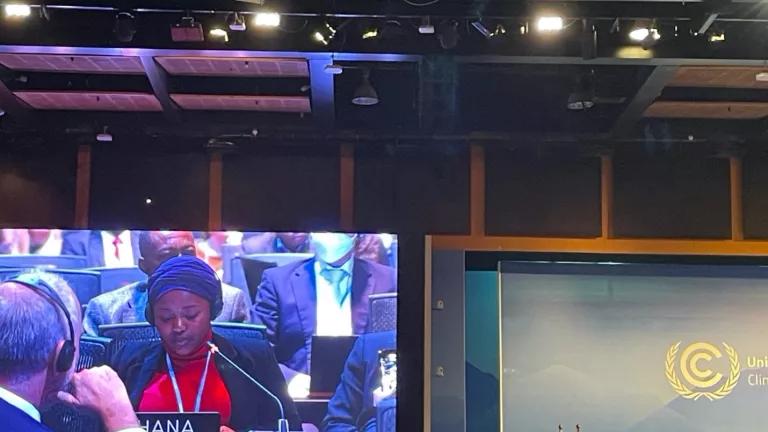
Forward Progress at COP27 in Egypt and the Path Ahead
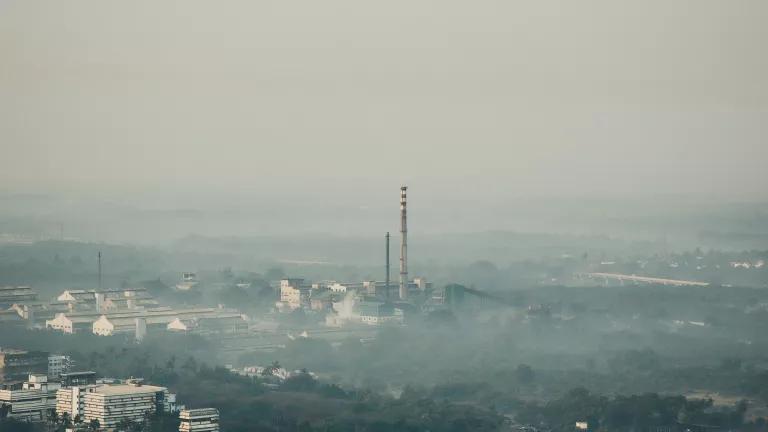
Coordinating Actions to Counter India’s Air Pollution Crisis

The Global North’s Myth Making Threatens COP27 Forest Pledge

Mobilizing Equity, Implementation & Ambition at COP27
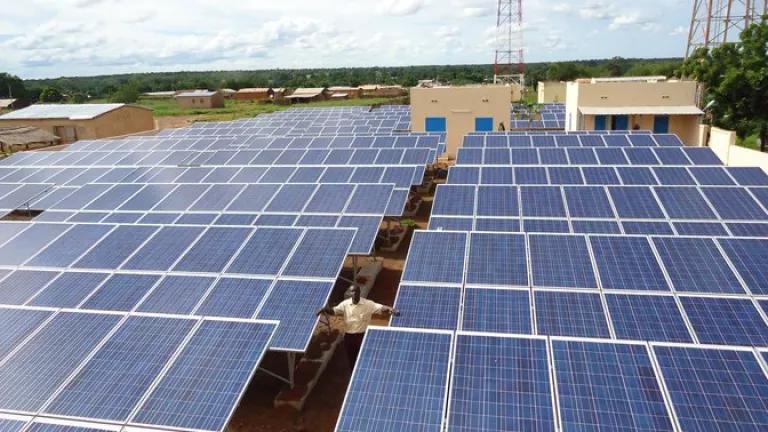
Time to Fast-Track Africa’s Clean & Equitable Energy Future

China’s Climate Progress Ahead of COP27

India at COP27: A Defining Moment and a Balancing Act
